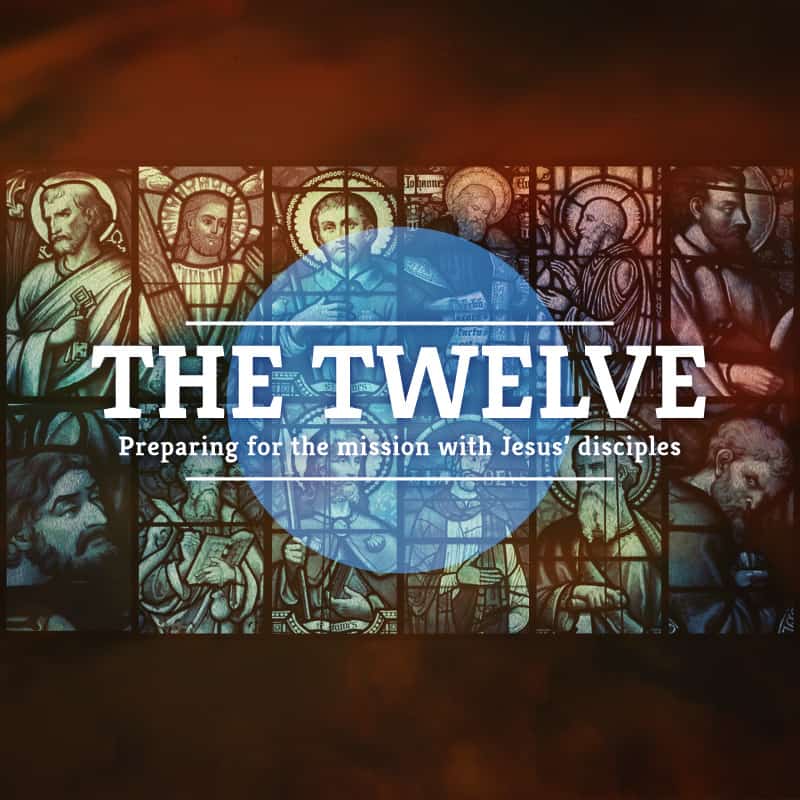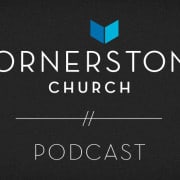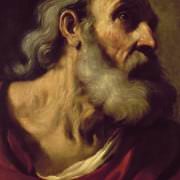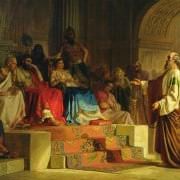 TITLE: The Twelve: Peter Part Two
TITLE: The Twelve: Peter Part Two
PREACHER: Craig Herbert
DATE: 9 FEBRUARY 2014 – Sunday AM at Bedfordview
Download MP3 message audio
(Right Click the link and choose the ‘Save As’ Option)
Download the PDF transcript
TRANSCRIPT
A BIO OF PETER
 Name: Simon son of Jonah (nicknamed Peter by Jesus meaning rock)
Name: Simon son of Jonah (nicknamed Peter by Jesus meaning rock)
Marital Status: Married
Wife’s name: Unknown
Home town: Bethsaida, a town on Lake Ganesaret in Galilee (exact location unknown, possibly the north shore). The apostle Philip also came from this town as well.
Profession: Fisherman
Age: 20-25 years old
Relatives: Andrew, his brother and his mother-in-law are mentioned in the scriptures.
Personality: Extroverted, brusque, abrasive, loud, enthusiastic, impulsive, resolute, eager, bold, aggressive and outspoken. Peter is noted for being somewhat brash. He was quick to speak and share an opinion. He was quick to act and sometimes slow to think. He was susceptible to external influences and intimidated at times. But Peter really did love Jesus.
Social status: Uneducated in the Mosaic Law but seemed to have a reasonable fishing business with his brother (Andrew) and partners (James and John the sons of Zebedee). He seemed to have owned his own boat and it appears as though he owned a house in Capernaum as well.
General facts: Spoke Aramaic but also had an accent that clearly identified him as a Galilean; was ‘unlearned’ i.e. he had no additional religious or scriptural instruction; was a disciple of John the Baptist, and was one of the three apostles closest to Jesus.
Position amongst the twelve: Although not named as a leader, Peter certainly seems to be the apostle that was most apparent amongst Jesus’s followers (his name is mentioned about 110 times in the gospels). His name is mentioned first in all the lists of the Apostles. Jesus seemed to have a closer relationship with him together with James and John and these three would often be called out by Jesus to go somewhere or do something that the others were not invited to (Example: the transfiguration and the Garden of Gethsemane). After Christ’s ascension, Peter appears to take a position of leadership, quickly becoming the spokesman for the group, and the other disciples seem to follow without resistance.
Death: He was martyred as prophesied by Jesus. Early church tradition claims that Peter was in Rome in the last phase of his life and that he was executed by crucifixion (upside down, with arms outstretched) at the time of the Great Fire of Rome of the year 64, during the reign of Emperor Nero. Most scholars believe that Peter was crucified sometime between AD 64 and 68.
INTRODUCTION
In the first part of our study on Peter we noted how Jesus formed Peter’s character for the purpose of mission. In this part we’ll look at the mission itself – the focus of what it is we do as Christians.
As we mentioned before, in 2013 about five hundred to seven hundred thousand sermons were preached in Johannesburg, yet things have gone backwards. This is a shocking stat and the missing ingredient in the mobilisation of the priesthood is us becoming disciples of Christ. Surely all of the preaching going on should mean that society will change? Surely something of what God is doing in us should bring change? Well, we must be willing to change. Read more
Podcast: Play in new window | Download
Subscribe:






 Name: Simon son of Jonah (nicknamed Peter by Jesus meaning rock)
Name: Simon son of Jonah (nicknamed Peter by Jesus meaning rock)